Eastern Europe Goes South
Many eastern European states who are part of the EU and were admitted only after being deemed compliant with the Copenhagen criteria have seen political parties in these countries become increasingly illiberal
 Courtesy: Foreign Affairs
Courtesy: Foreign Affairs
Many eastern European states who are part of the EU and were admitted only after being deemed compliant with the Copenhagen criteria have seen political parties in these countries become increasingly illiberal
Ronen Sen, former Indian Ambassador to Russia and the United States, talks about the global implications of Russia’s suspension from the G8. In an interview to Gateway House, he also discusses the impact of these developments on major geopolitical issues like Iran and Syria
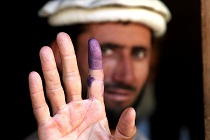 Courtesy: Staff Sgt. Christopher Allison/Wikimedia Commons
Courtesy: Staff Sgt. Christopher Allison/Wikimedia Commons
The presidential election is vital not only for Afghanistan’s future but also for the stability of the region. The ensuing race has thrown up candidates from various ethnicities and they face an uphill task with a resurgent Taliban and a former President who still hopes to be a force in the political arena
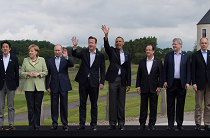 Courtesy: GOV.UK/Flickr
Courtesy: GOV.UK/Flickr
A slumped arms industry and the U.S. shale gas sector will gain from NATO’s threat of stricter sanctions and suspension of Russia from the G8. BRICS has protested, but unless we consolidate alternate international financial structures, even other big economies like India can eventually be the targets of sanctions

A new equation is emerging between the BRICS countries and the informal grouping of the most industrialized economies, called the G8. The G8 has been reduced to G7 following Russia’s suspension. Of late, BRICS have taken an assertive stand against the G8 in economic as well as the geo-political fora
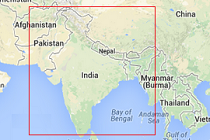 Courtesy: User:Deepak/Wikimedia Commons
Courtesy: User:Deepak/Wikimedia Commons
Historically, foreign policy has rarely played a decisive role in the Indian elections although issues like the nuclear deal with the U.S. have led to domestic storms. In this interview Neelam Deo, Director, Gateway House, explains why foreign policy has only occasionally been a key factor in the elections
Debabrata Saha, former Indian Ambassador to Ukraine, talks about the ongoing crisis in Ukraine and its likely impact on bilateral trade ties. In an interview to Gateway House, he also examines India’s position on the crisis in the backdrop of worsening U.S.-Russia relations
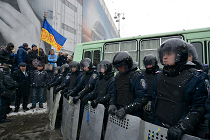 Courtesy: mac_ivan/Flickr
Courtesy: mac_ivan/Flickr
Crimea will hold a referendum this weekend on secession from Ukraine. The current crisis has brought to the fore Cold War era hostilities. However, an unstable Ukraine is in no one’s interest as it has implications for the region and the EU-Russia trade relationship
Neelam Deo, Director, Gateway House, talks about the potential economic impact of the ongoing crisis in the Ukraine. In this interview, she also examines the aid packages offered to Ukraine by Russia and the West, and assesses how the situation will affect India’s trade relations
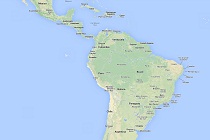 Courtesy: Google Maps
Courtesy: Google Maps
In 'Latin America Update' Gateway House lists some of the important events in Latin America over the past month